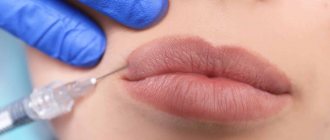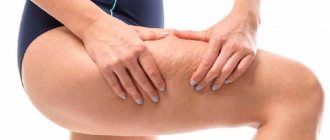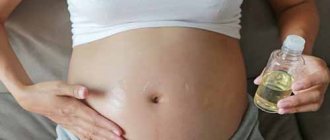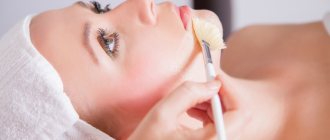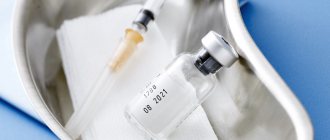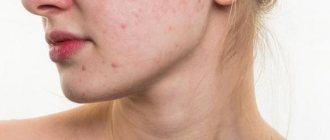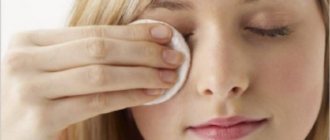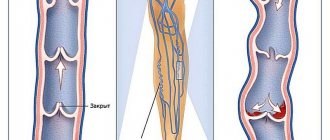Every woman or girl dreams of looking beautiful and attractive. And many of them, striving for their ideal, resort to lip augmentation. But what to do if the planned procedure coincides with such a happy period as pregnancy. Some are in a hurry to put off all cosmetic procedures and plunge headlong into the troubles associated with the baby, while others continue to lead their usual lifestyle and do not refuse such procedures as injections with hyaluronic acid. After all, while carrying a child, additional care for appearance is required more than ever, since the mother gives all the nutrients to the unborn baby.
But what should we do in this situation? Is it possible for a girl to enlarge her lips with hyaluronic acid during pregnancy? This article will answer this question.
Hyaluronic acid and pregnancy: are they compatible?
During pregnancy, a woman faces both joyful moments and severe trials. Among many nuances, women react especially sharply to changes in their appearance. The skin is dull, tight and flaky, and the area around the eyes leaves much to be desired. Noticing such changes, women are trying to make the most of popular creams and procedures to slow down skin aging. So the question arises: is it possible to use hyaluronic acid during pregnancy or absolutely not? There are as many opinions as there are specialists. But gynecologists, immunologists and therapists are categorically against absolutely all injection cosmetic procedures. The option of using capsules with hyaluronic acid is also eliminated. Cosmetologists claim that you can inject hyaluronic acid during pregnancy and it will not affect the development of the child. But this requires a comprehensive examination by specialized specialists.
No matter how strong the desire to look great, you need to first think about the consequences. It is unknown how the next mesotherapy will affect the baby’s condition. But the child is not the only reason. Due to rapid hormonal changes during pregnancy, the body's reaction to hyaluronic acid injections during pregnancy can be very unpredictable: from allergies to worsening skin condition.
Women who regularly undergo sessions with hyaluronic acid cannot always refuse the routine injection and visit their cosmetologist in later stages of pregnancy. In isolated cases, allergic complications are observed, but this does not affect the general course of pregnancy and the baby. But it is better to postpone such procedures until the end of breastfeeding and replace them with more gentle means.
This is interesting!
Hyaluronic acid of animal origin is obtained from the vitreous body of the eyes of horned animals, umbilical cord and cockscombs. The synthetic version of hyaluronate is made from grown bacteria and fungi.
Hyaluronic acid: can pregnant women be injected, possible side effects
Women strive to look young and beautiful at any age. Pregnancy is no exception. Changes in hormonal levels, increased stress on the body, and taking certain medications negatively affect the appearance of pregnant women. Due to increased skin dryness, many women are interested in whether hyaluronic acid is safe during pregnancy.
The method of using the substance in pregnant women is of certain importance.
Is it possible to inject hyaluronic acid during pregnancy?
Experts note that during pregnancy, hair and skin do not always shine, and nails grow well. Often, pregnant women experience dry skin and the appearance of inflammatory elements.
Many women visit a cosmetologist before pregnancy and use products based on hyaluronic acid. Accordingly, a natural question arises whether it is possible to continue using the drugs during pregnancy. The method of using hyaluronic acid in pregnant women is also important: external or injection.
The substance is a compound of natural origin. This is a polysaccharide that is necessary for holding collagen fibers together. Hyaluronic acid is produced by fibroblasts, which are cells of the epidermis. It fills the intercellular space, while moisturizing the skin and exhibiting an antioxidant effect.
Attention! Hyaluronic acid is like a clear gel. Its molecule is capable of holding water molecules.
As we age, the amount of the substance synthesized in the body decreases, which is manifested by dullness of the skin, deterioration of the oval of the face, and the appearance of wrinkles. These changes are genetically determined. However, the speed of their appearance is influenced by various external factors:
- bad habits;
- Tan;
- lack of magnesium, ascorbic acid, iron, zinc.
In modern cosmetology, hyaluronic acid is one of the most popular anti-aging skin products. For use for cosmetic purposes, the substance is produced and synthesized based on animal raw materials.
Hyaluronic acid is included in the following products:
- creams;
- meso cocktails;
- masks;
- fillers.
In most cases, hyaluronic acid is injected to eliminate wrinkles on the forehead, around the eyes, and in the nasolabial triangle. The polysaccharide smoothes out wrinkles provided that the procedures are performed regularly. The course of therapy includes 4 injections. It is repeated up to 2 times a year to achieve the following effects:
- increased skin turgor;
- stimulation of hyaluronate synthesis;
- improvement of facial tone;
- tissue regeneration;
- protection of cellular elements from aging;
- smoothing out stretch marks.
Injection cosmetic procedures are prohibited for pregnant women due to the risk of complications. It should also be remembered that the substance can affect hormonal levels.
Pregnant women can use products based on hyaluronic acid only in the form of preparations intended for external use.
Is it possible to inject hyaluronic acid while breastfeeding?
It is not advisable to use hyaluronic acid in facial injections during pregnancy. The drug has 2 manufacturing options:
- Animal origin. The material is obtained by processing the vitreous body of the eyes, mainly of horned animals.
- Synthetic variety. Hyaluronate is made from grown fungi and bacteria.
Hyaluronic acid injections are not recommended during pregnancy and breastfeeding. This is due to the risk of adverse reactions in mother and child.
Possible side effects of using hyaluronic acid on the face during pregnancy
Hyaluronic acid is usually not used during early pregnancy. The waste products of various microorganisms and animal proteins can enter subcutaneously with the substance. The immune system of pregnant women perceives them as a foreign body, triggering a corresponding allergic reaction.
There is a risk of hyaluronate leaking into colostrum, which sometimes affects the production and composition of breast milk. Some experts believe that the substance crosses the placental barrier in pregnant women, causing complications.
If pregnant women have their lips treated with hyaluronic acid, the following undesirable reactions may occur:
- hyperemia;
- itching;
- swelling;
- hematoma;
- pain;
- thickening of the skin.
Contraindications to the use of hyaluronic acid on the lips indicate that the product is not recommended during pregnancy.
Experts emphasize that there is no convincing evidence of the harm of hyaluronic products due to the lack of appropriate studies in pregnant women.
However, there is a theoretical possibility of intrauterine damage to the organs and systems of the growing fetus. Among the pathologies are abnormalities of blood vessels, heart and allergic reactions.
Recommended reading: Jasmine oil for face and hair
Precautions before using hyaluronic acid during pregnancy
Some doctors believe that hyaluronate can be used by pregnant women. Injections are allowed after a full examination and exclusion of contraindications. In this case, a pregnant woman should take a responsible approach to choosing a specialist and a medical institution.
When using hyaluronate-based creams, you need to apply the products in the evening after first cleansing your facial skin. After 10 minutes, excess cosmetic product is removed with a napkin.
Oily skin requires the use of creams with the addition of chamomile and calendula extracts. This composition provides an anti-inflammatory effect in pregnant women.
Attention! You can use hyaluronic products only after performing a special test for allergic reactions. A small amount of cream is applied to the wrist or elbow area and wait up to 20 minutes.
The use of the substance should be discontinued if irritation or rash occurs in pregnant women.
Alternatives to hyaluronic acid injections during pregnancy
To minimize unpleasant consequences, pregnant women need to use hyaluronate in the form of external agents:
Attention! Preparations based on hyaluronic acid in pregnant women can cause allergic reactions.
Sometimes hyaluronic products in the form of capsules and tablets are prescribed to pregnant women for therapeutic purposes for the following pathologies:
- Eye diseases. The substance maintains visual acuity by restoring the vitreous body of the eyeball.
- Arthrosis and arthritis. The active component strengthens articular cartilage and increases mobility.
Important! Hyaluronic agents can activate regeneration processes.
Conclusion
Hyaluronic acid is not used in the form of injections during pregnancy. This is due to changes in hormonal levels and the risk of adverse reactions and inflammatory processes.
It is preferable for pregnant women to use external cosmetics containing hyaluronate.
Their effectiveness is comparatively lower, but the risk of adverse events is also insignificant.
Did you find this article useful?
Source: https://poleznii-site.ru/krasota/gialuronovaya-kislota-pri-beremennosti-mozhno-li-kolot-delat-guby.html
Risks of use and contraindications to the use of hyaluronic acid during pregnancy
Together with hyaluronic acid, animal proteins or waste products of microorganisms get under the skin. The immune system perceives them as an “invasion” of a foreign body and an allergic reaction occurs. And during pregnancy, the intensity of allergic manifestations increases several times. But scientists are working tirelessly on new methods for purifying hyaluronate from impurities.
There is a risk of hyaluronic acid penetrating into breast milk, or more precisely colostrum, which begins to accumulate in the mammary glands after conception. This may affect its further production and the newborn baby will have to be fed with formula. During the breastfeeding period, this radical method of restoring youth is also dangerous, because hyaluronic acid can get into the baby's milk and cause allergies.
Some experts argue that hyaluronic acid, along with an additional “load” of toxins and becs, can cross the placental barrier. When reaching the baby, this mixture can cause problems with the cardiovascular system or cause a miscarriage. There is no clinical evidence, but is it worth the risk?
Contraindications to the use of hyaluronic acid:
- Pregnancy and lactation period. There are certain risks for pregnant women, so this type of rejuvenation can be postponed until a more suitable period.
- Inflammation of the skin in the facial area. The introduction of hyaluronic acid serves as additional stress for inflamed skin. Therefore, the skin is first brought back to normal, and then the procedure is carried out.
- Common infectious or viral diseases. When the injection is given, the skin is damaged and the infection can enter the bloodstream.
- Acute acne and furunculosis. Trauma to the skin can worsen the rash.
- Blood clotting disorder. If blood clotting is poor, any manipulation can cause the formation of large hematomas and bruises.
- Predisposition to the formation of keloid scars.
- Chemical and laser peels done less than 30 days ago. After such procedures, the skin must “rest”, otherwise severe inflammation may begin.
- Individual hypersensitivity to hyaluronic acid or cosmetic procedures.
What are the contraindications for lip augmentation with hyaluronic acid?
No matter how much you would like to make your mouth more expressive, there are certain contraindications for lip augmentation using hyaluronic acid. Both lip biorevitalization and lipofilling are procedures that involve at least minimal (compared to plastic surgery), but still intervention in the body.
Moreover, being guided only by the desire to have plump lips is not correct. There are certain indications for carrying out such manipulation.
After all, any cosmetic procedure is designed to make a woman more attractive, sexier, freer, and to get rid of possible complexes about her appearance.
But there is no way to disfigure it, turning it into a silicone doll with barely opening lips.
What is hyaluronic acid?
Every sane woman will first of all be interested in: is lip augmentation with hyaluronic acid dangerous? To answer the question in detail, let’s figure out what this substance is.
Hyaluronic acid is a representative of a class of polysaccharides produced by the human body, namely connective tissue. This substance is an integral component of the intercellular fluid; it is present in large quantities in cartilage, saliva, and nerve cells.
This acid absorbs and retains a uniquely large amount of moisture, which ensures water and electrolyte balance in the body. But the trouble is that its active production begins to slowly fade away after 25 years. Consequently, the aging process of the body begins.
And if hyaluronic acid is biologically compatible with the cells of the human body, then a priori it cannot cause harm during lip augmentation.
Then why does information appear about the development of complications and pronounced side effects after the procedure? Perhaps the point here is not in the substances themselves that make up the filler, but in the notorious human factor? Let's understand everything in order.
It seems that special preparation for the lip augmentation procedure is not necessary (as some cosmetologists say). But still, at the first visit, an experienced and responsible specialist will definitely examine and evaluate the “front of work” - that is, the condition of the lips and the need for the procedure. If everything is in order, then he will advise you to follow a few simple rules:
- a few days before the manipulation, exclude salty, spicy and smoked foods, alcohol from the diet (preventing the formation of excessive edema);
- At about the same time, start taking vascular-strengthening drugs (banal Ascorutin or other drugs with vitamin C) to reduce the risk of developing hematomas at the injection site;
- if you are prone to herpetic rashes, it is recommended to take a prophylactic course of antiviral drugs;
- You can take aspirin immediately before going to the procedure.
And no matter how they describe the procedure as absolutely painless, don’t believe it. Violating the integrity of the skin by “poking it with a needle” is always discomfort. But how big will depend on the client’s pain sensitivity threshold.
Features of the procedure
If there are no contraindications for lip augmentation, the mouth area is carefully examined by a specialist to calculate the required amount of filler. You should not neglect the advice of a cosmetologist in this aspect, otherwise the consequences may be unexpected. The procedure is carried out in several stages.
- Cleansing lips from decorative cosmetics, dirt, micro-dust particles. This is followed by treatment with an antiseptic.
- Injection of filler using a special device or syringe. The voids are filled, and then the cosmetologist manually distributes the filler over the entire lip area.
- Applying a special antiseptic balm that prevents infection and inflammation.
With proper post-treatment, the inevitable swelling will subside within 3-4 days, maximum 10 days.
If you want to achieve a significant increase in lip volume, you should not inject a large amount of filler right away. This can cause severe swelling, mouth deformation and other unpleasant consequences.
It is better to repeat the procedure after complete recovery, that is, after 3-4 weeks.
If the manipulation is carried out correctly, the indications and all possible contraindications are taken into account, and post-treatment is correct, complications after lip augmentation, as a rule, do not arise.
Indications for the procedure
Plump lips are beautiful, sexy, and very fashionable lately. But in order to achieve a justified result, you need to be guided not so much by your own wishes (sometimes whims), but by the indications for using the lip augmentation procedure and remember that it has a number of contraindications.
It makes sense to prepare for lip augmentation with hyaluronic acid in the following cases:
- actually small lip volume (and not a desire to increase it unjustifiably, given normal proportions);
- blurred contours (congenital or acquired);
- correction of irregular mouth shape;
- disproportionality of size;
- the appearance of deep wrinkles;
- fading of the skin of the lips, which cannot be corrected with cosmetics or masks;
- sinking.
The use of fillers with hyaluronic acid is an augmentation method that has a relatively small list of contraindications. In addition, modern cosmetology offers several methods of administering fillers, which are somewhat different from each other.
- Injection biorevitalization - administration of the drug using a syringe with a very thin needle. The filler can be “delivered” to any layers of the skin, including very deep ones. The disadvantage of this method is that it is quite painful and causes side effects.
- Laser biorevitalization involves the introduction of hyaluronic acid without compromising the integrity of the skin. But in this case, saturating the epidermis (especially the deep layers) with the required concentration of the substance is quite problematic.
- Lipofilling is the injection of your own fat cells with hyaluronic acid. The advantage of the method is that the result lasts longer. Disadvantages include a longer preparation period, more difficult to perform, and there may be more side effects and complications.
All these methods have an equal number of indications and contraindications.
Contraindications for lip augmentation with hyaluronic acid
Before deciding to enlarge your lips with hyaluronic acid, you need to carefully understand all possible contraindications. Otherwise, the desire to look attractive and sexy can turn into a real nightmare.
If you do not take into account contraindications for the procedure or ignore advice on the amount of filler injected, after lip augmentation with hyaluronic acid, you may need the help of a surgeon and a long period of rehabilitation.
The human body is designed in such a way that it cruelly takes revenge for unjustified interference and the desire to “correct natural injustice.”
The immune system reacts to the injected substance as if it were a foreign agent and turns on the self-defense system.
Contraindications for lip augmentation with hyaluronic acid, although relatively small, are quite serious and require strict response:
- period of pregnancy and breastfeeding;
- immune disruptions caused by acute or chronic general illnesses;
- endocrine pathologies;
- infectious or inflammatory manifestations in the mouth;
- viral, infectious, inflammatory diseases in the acute stage;
- chronic diseases in the acute period;
- taking certain medications, in particular anticoagulants (blood thinners);
- less than a month after cosmetic manipulations - mechanical or chemical peeling, laser resurfacing of the face and others that involve intervention in the deep layers of the epidermis.
A very serious contraindication to lip augmentation with hyaluronate is an allergy to the substance in particular or a tendency to any kind of allergic manifestations in general.
In some cases, for minor food allergies, a specialist may recommend taking a preventative course of antihistamines.
But this is purely individual and the client should be made aware of possible health risks.
If all contraindications, both permanent and temporary, are taken into account, the development of complications with lip augmentation with hyaluronic acid is minimal.
Possible consequences of lip augmentation with hyaluronic acid
If we consider the consequences after lip augmentation with hyaluronic acid in the context of the inevitable, we can name the following:
- a feeling of discomfort and pain (its intensity will depend on the threshold of pain sensitivity);
- swelling of varying severity;
- hematomas and bruises at the puncture site;
- hyperemia of the skin around the mouth.
As a rule, such phenomena disappear on their own after 3-10 days. If nothing extraordinary happens during this time, you just need to follow the cosmetologist’s instructions. Otherwise, immediately seek qualified help.
Complications after lip augmentation occur quite rarely and are often associated either with the unprofessionalism of the specialist who performed the procedure, or with the client’s inattention and violation of post-care rules.
Among the complications are:
- severe swelling, bright bruises and bruises;
- addition of infection;
- formation of cones and hard lumps;
- numbness of lips;
- severe itching;
- filler migration, shape deformation;
- allergic reactions up to Quincke's edema.
A general allergic reaction, such as Quincke's edema, is a condition that threatens not only health, but also life itself. As a rule, it can develop if the allergenic factor of the body has not been taken into account.
Recommendations for post-procedure care
First of all, we draw your attention to the fact that 2-4 weeks after the manipulation you need to visit your specialist in order to hear his verdict - whether correction is needed or not. And it may be needed if there is a need to enhance the effect, eliminate some unevenness or asymmetry.
But first you need to properly care for your lips after the augmentation procedure:
- do not use decorative lip cosmetics for at least a day, and preferably 3-5 days;
- do not drink hot drinks, including alcohol, do not eat hot dishes;
- solarium, bathhouse, sauna, beach - taboo for 2-3 weeks if you want to maintain the effect longer.
Moderately plump lips are beautiful and attractive. But to achieve just such an aesthetic effect, you need to take into account many nuances. And let men not even suspect what her beauty costs a woman.
More information on the website: faceandcare.ru
Undesirable side effects from using hyaluronic acid during pregnancy
Side effects are localized in the injection area. Common consequences include:
- severe itching;
- hyperemia (redness) of the skin;
- mild swelling or swelling;
- pain;
- hematomas;
- thickenings and granulomas;
All of the above symptoms disappear after 3-5 days. Physical activity and sunbathing should be avoided during this period. To avoid more serious complications, be sure to conduct a sensitivity test and contact cosmetology clinics with a good reputation.
On a note!
Hyaluronic acid can be used without restrictions when planning pregnancy, but the next session will need to be repeated after 6-12 months. Then you have to choose: either beauty or breastfeeding. It is not for nothing that pregnancy comes first in the annotation for hyaluronic acid as contraindications.
The role of acid in the body and indications for its use
Hyaluronic acid is a polysaccharide that is produced by fibroblasts and is involved in the process of bonding existing collagen fibers. Its role in the body:
- filling the space between cells;
- moisturizing the skin;
- antioxidant effect at the cellular level.
The body synthesizes hyaluronic acid in sufficient quantities only until a person is 20 years of age, then its quantity decreases, which leads to problems with appearance - the oval of the face becomes blurry, the dermis acquires a gray tint, becomes dull, flabby and thinned, which provokes formation on its surface wrinkles
Indications for subcutaneous injections of hyaluronic acid are:
- decreased elasticity and firmness of the skin of the face;
- sagging, sagging dermis;
- unnatural shade of the epidermis - grayish;
- habitual swelling;
- excessive dryness of the skin, its thinning, the appearance of areas of peeling or redness;
- the presence of small facial wrinkles and deep folds.
We recommend reading about whether mesotherapy is allowed during pregnancy. From the article you will learn whether mesotherapy is allowed when planning pregnancy, in the early/late stages.
And here is more information about the use of hyaluronic acid in medicine and cosmetology.
Alternative ways to use hyaluronate during pregnancy
If we have already figured out procedures based on hyaluronate, what about external masks, lotions and creams with hyaluronic acid during pregnancy?
There are no direct contraindications to their use. And this option is much better than injections. But the vulnerable body of a pregnant woman can respond with dermatitis to such beauty products. As a result, an acquired allergy to hyaluronic acid can remain for life. Therefore, cosmetologists strongly recommend using a minimum of decorative cosmetics and other cosmetics.
A woman will always have a couple of recipes for homemade masks or scrubs in her arsenal. They are not as magical as hyaluronic acid, but they will help your skin during pregnancy. You can also enrich your diet with foods that stimulate the production of your own hyluronate. These include vegetables and fruits containing starch and vitamin C, as well as animal products.
Video: “What is hyaluronic acid”
The topic of many discussions on the Internet is lip augmentation during pregnancy. It turns out that the topic of beauty is very relevant for expectant mothers. After the birth of a child, women have no fewer questions. Mothers are concerned about how cosmetic procedures will affect their baby while breastfeeding.
Most women resort to contour plastic surgery - correction of shape (volume, contour) by introducing a gel filler. Preference is given to hyaluronic acid, which is considered the safest for health.
In the body of any person, this acid is synthesized daily, for example, up to 15 g per 70 kg of weight. The purpose of the acid in the human body:
- promotes skin regeneration;
- regulates the elasticity of cartilage tissue;
- is part of the joint fluid.
The issue of lip augmentation during pregnancy worries many women. The main reason is the desire to be beautiful. Is there a risk to the health of the woman and fetus from a simple cosmetic procedure?
Hyaluronic acid injection is performed under local anesthesia. The procedure lasts no more than an hour. Despite the harmlessness of the injections, they are contraindicated for pregnant women. A competent cosmetologist will never perform contouring on a pregnant woman, regardless of the period. In any trimester of pregnancy, there are risks to the health of the unborn child.
Three arguments against injections for doubting women:
- Pregnant women do not want any pain;
- unstable hormonal levels can provoke prolonged, voluminous swelling;
- In pregnant women, the effect of injections lasts only a month.
These arguments relate to the appearance and well-being of a woman, but injections should be abandoned primarily because of the health of the child.
Breastfeeding and hyaluronic acid injections
Hyaluronic acid has a high molecular weight and is incredibly unlikely to pass into breast milk. This is noted by experts involved in breastfeeding issues. However, most cosmetologists are against contouring using hyaluronic acid for women during lactation.
The anesthetic, not hyaluronic acid, can cause harm during breastfeeding. An anesthetic is administered for pain relief before the injection. Apply:
- Lidocaine;
- Novocaine;
- Ultracaine.
Any of these drugs are contraindicated while breastfeeding. A caring mother, when asked whether it is possible to do lip augmentation with hyaluronic acid while breastfeeding, should have one answer - no.
Lip augmentation with threads during pregnancy
One of the modern and reliable methods of lip augmentation is the introduction of special biodegradable threads into their area, which produce the formation of a kind of fibrous frame. It is what gives the lips natural fullness and volume.
The method of introducing biodergarding threads into the lip area guarantees:
- tightening and reliability;
- stimulating the production of your own collagen;
- forming the basis for new soft lip tissue.
The result after this procedure lasts up to 3-4 years and can be combined with correction using hyaluronic acid injections. During pregnancy and lactation, it is strongly recommended to postpone the procedure.
Methods for increasing lip volume without injections and surgeries also include:
- massage treatments;
- thermage;
- electroporation procedure.
The method of thermage and massage procedures is not highly effective, one might even say that it is ineffective and only produces an effect for a short period of time.
The essence of the electroporation method is to saturate the tissues of the lip area with hyaluronic acid. It is performed using an electrical machine onto which a portion of hyaluronic acid gel is applied to create a potential distinction between the dermis of the skin and its surface. It is thanks to the opening of lipid channels, which is produced by this method, that penetration into the deep layers of the dermis occurs. To achieve the expected result, depending on the initial volume of the lips and what needs to be achieved, it is recommended to complete a course of 6-12 procedures. You need to do 2 procedures per week. Then the procedure must be repeated once every 3 months. This technique is in no way acceptable during pregnancy. All women who wish to undergo this period must wait until it ends. While breastfeeding babies, the procedures are also contraindicated.
Safe ways to enhance lips for nursing mothers
Nursing mothers should not despair. There are several methods of lip augmentation that are safe for the baby (fetus). You need to choose the most suitable method and use it to bring them into the desired shape. Four options can be recommended:
- massage;
- makeup;
- tattoo;
- exercises.
Massage
Simple massage procedures performed by a woman at home help add volume to the lips. The effect is minor in the form of slight swelling. The advantage of this method is that it is allowed during pregnancy.
Massage with a medium-hard toothbrush. In the morning, massage your mouth, smearing it with honey. During the day, massage your lips with a dry brush 2–3 times. To increase swelling, perform a contrast massage, alternating stroking with an ice cube and warm lotions. Exfoliate once a week: add a little sugar to a teaspoon of olive oil, gently rub it into the skin of your lips with your fingertips.
Tattoo
Tattooing helps make lips visually larger; with its help, you can make a slight correction of their shape. Pros of tattooing:
- maintaining the effect over a long period of time (from 1 to 3 years);
- makes the lip color more saturated;
- creates a clear lip contour.
Due to the pain, tattooing is contraindicated for pregnant women.
Makeup
For pregnant women, the cosmetology industry produces high-quality cosmetics, which are made only from natural materials and are absolutely safe for the health of mothers and babies. Properly done makeup emphasizes the necessary facial features and hides its defects.
Using a pencil to contour your lips, you can achieve the effect of “lush lips”. Volume will be given by light-colored lipstick with shiny splashes. When applying a dark shade of lipstick, the volume is modeled with a layer of transparent lip gloss.
Exercises
If a woman becomes pregnant, exercises will help improve the shape of her lips and reduce facial wrinkles. The effect is achieved through systematic implementation.
The first exercise is fish. Do it for 5 minutes. Pull your lips forward as far as possible, leaving them in this position, rhythmically opening and closing your mouth.
The second exercise is named after the camel. You need to make movements with your mouth tightly closed. First move your mouth to the left, then to the right, then up and finally down. Repeat the movements for several minutes.
Exercise three is called the lizard. You need to imitate the movement of a lizard's tongue; to do this, open your mouth slightly, spread it as wide as possible, quickly stick your tongue out and in, continue for at least 3 to 5 minutes.
Candle is the fourth exercise. Pull your lips forward with a tube, imitate blowing out a candle, continue for 2 minutes.
Exercise five - balloon. While drawing air into your mouth, inflate your cheeks as much as possible. Exhale slowly at first, and at the end take 2 very strong exhalations. Repeat for at least two minutes.
Exercise vowels. The point of the sixth exercise is to pronounce all the vowels of the alphabet in turn. Having finished the list, first take a deep breath through a half-open mouth, then exhale smoothly.
Whistle is the last, seventh exercise. During this exercise, they simply whistle any melody. The duration of the exercise is 5 minutes.
Lip augmentation during pregnancy with exercises
There is nothing wrong with a pregnant woman doing a series of simple and even useful exercises for her lips during such a key period of her life as awaiting the birth of her baby. In order to see obvious results, you need to be patient and do them regularly. With their help, you can even get rid of shallow expression wrinkles in the mouth area.
Exercises:
- The first exercise is called fish. When performing this exercise, you need to stretch your lips forward and imitate how a fish does with its mouth - open and close its mouth. Do this for about 3-5 minutes.
- The second exercise is called camel. You need to close your lips tightly in a natural position and move them left and right, up and down, so that it looks something like how a camel chews.
- The third exercise is called the lizard. You need to open your mouth slightly, pull out your tongue to its maximum length and then quickly hide it. Do this for 3-5 minutes. The exercise is reminiscent of how a lizard catches prey with its tongue.
- The fourth exercise is called a candle. To do this, you need to stretch your lips forward and imagine a burning candle in front of you, pretending that you are blowing it out. This should be done for about 2 minutes.
- Fifth exercise - balloon To perform it, you need to strongly inflate your cheeks and slowly exhale the air, then exhale it as much as possible in 2 exhalations. Do this for 2 minutes.
- Sixth exercise - letters It is necessary to pronounce the vowels (all of which are present) in a slow order. Then you need to take a deep breath and exhale through your half-open mouth.
- The seventh exercise is called the whistle. To do this, you need to whistle a melody for about 5 minutes.
Biorevitalization during pregnancy - pros or cons
At the very beginning, it is worth understanding what biorevitalization is.
This is a cosmetic procedure for introducing hyaluronic acid into the skin through injections or a non-injection method. As a result of the procedure, the quality of the skin improves, it becomes moisturized, elastic, the substance promotes collagen synthesis and binds moisture. The filler fills the voids in the skin, making it even out and wrinkles smoothed out.
Important: if there are any suspicions, then before agreeing to the procedure - the cosmetologist will do it, find out if you are pregnant.
There are two methods of biorevitalization:
- injection;
- non-injection (laser).
Let’s take a closer look at whether pregnant women can undergo biorevitalization using one of these methods, how this can affect the child, and how dangerous this procedure is.
If any of the readers have already injected biorevitalizant in the past, then they have probably heard that any filler is strictly contraindicated for both pregnant and breastfeeding women. This is due to the fact that the effect of a particular component on the fetus may not be fully established - and the company declines any responsibility for disruption of intrauterine development due to the filler.
Doing biorevitalization during pregnancy is especially dangerous in the first trimester: it is during this period that the human circulatory, cardiovascular, nervous systems, and facial tissues are formed. Any intervention with chemicals, and even more so with medications in case of complications, can severely deform the fetus and lead to chronic diseases in the unborn child.
Biorevitalization is not a mandatory procedure, it is not therapeutic and not vital. It is better to wait with it until childbirth - more precisely, after the feeding period. Until this period, you can get by with cosmetic preparations.
If we talk about the laser method of performing the procedure, it is less dangerous, since the skin is not damaged and the risk of infection is reduced. Biorevitalization during pregnancy is possible only in this way, but in later stages, in the absence of any contraindications and if the pregnancy is proceeding normally. But it’s better to postpone it too.
Pregnancy is the main contraindication for the procedure, with or without injections. Complications after the procedure include itching, redness of the skin, inflammation, which negatively affects the child. A spontaneous allergic reaction may occur because the hormonal system works completely differently.
Otherwise, other systems work, which affects the skin. For example, the fundamental reasons for biorevitalization - dry skin, sagging, wrinkles - can be caused solely by pregnancy, and they can go away after childbirth. It is also impossible to interfere with the natural processes in the body for the production of collagen using cosmetic procedures or medications. A decoction of herbs will be enough for washing.
During pregnancy, the body's water exchange is greatly disrupted, and a woman is prone to severe swelling: especially in the legs, hips, and face. So, punctures in the skin can cause severe swelling in the damaged areas - and this, in turn, can only aggravate the problem of wrinkles.
If the needle is handled carelessly, an inexperienced cosmetologist can cause bleeding. During pregnancy, blood clotting is greatly impaired, which can result in heavy blood loss, which is dangerous for both mother and child.
Negative consequences also include:
- tissue necrosis;
- seals at puncture sites;
- pinching of the facial nerve.
If after childbirth the skin is still in poor condition, then it is advisable to carry out biorevitalization about a year after the birth of the baby. Even if a woman continues to breastfeed, this will no longer affect the baby.
Some women agree to biorevitalization during early pregnancy, sometimes even hiding this fact from doctors and cosmetologists. Sometimes a woman herself does not yet know that she is pregnant. However, this procedure can be extremely dangerous for the unborn child, because it is in the first trimester that the formation of the fetal facial tissues, nervous, and circulatory systems occurs - and the intervention of chemicals can lead to defects.
Several reasons why biorevitalization should not be done during pregnancy:
- pain that negatively affects the well-being of the woman - and the fetus;
- possible consequences of the procedure - infections - and antibiotics have an extremely negative effect on the unborn child;
- pregnancy rearranges the endocrine system and hormones work differently, and this affects the appearance (including the skin).
Important: that’s why you can’t decide “if I get pregnant, I’ll do the procedure while I’m on maternity leave”: the skin reacts to cosmetic intervention completely unpredictably during this difficult period for the body. Allergic reactions may appear to drugs that have not previously caused this.
Other reasons include:
- decreased immunity (infection occurs very easily through punctures, risk of skin inflammation);
- predisposition to edema: the body accumulates fluid - and therefore edema may also appear on the face;
- predisposition to blood clotting disorders: heavy blood loss may occur or the wounds will not heal for a long time;
- filler components negatively affect the fetus and its development and cause general stress in the body.
Therefore, the answer to the question “is it possible to do biorevitalization during pregnancy” is a clear “no”.
Find out what cosmetic procedures can still be performed during pregnancy?
So what to do if it is forbidden to do biorevitalization? I want to remain beautiful and attractive even during the difficult period of bearing a baby. However, the fact that many cosmetic procedures have been temporarily banned is not at all a sign that you need to completely postpone self-care until childbirth - and even beyond. On the contrary, during this period the habit of taking care of yourself should not fall into oblivion, otherwise you can completely neglect yourself.
During pregnancy, wonderful metamorphoses occur with the skin, hair, and nails. For some, under the influence of hormones, the latter become unusually beautiful. Others are less lucky - and vitamin deficiency begins, as a result of which the nails begin to peel, hair falls out, and the skin becomes dry.
If for some reason you are prohibited from carrying out the birevitalization procedure, but want to maintain the beauty and youth of your skin, then we advise you to learn more about facial care during pregnancy. These rules are very important to maintain skin quality!
It is worth paying attention to special cosmetics for pregnant women – or to a more budget-friendly option: natural cosmetics.
These include:
- coffee scrubs;
- white clay masks;
- fruit masks;
- masks made from eggs and honey;
- creams with vegetable oils;
- decoctions of medicinal herbs for washing.
Important: despite their natural origin, certain products can still cause an individual allergic reaction - which is especially dangerous during pregnancy. Before using the product on your face, test it on a small area of skin on your arm.
The fact that many cosmetic procedures, including biorevitalization, are contraindicated during pregnancy can be very upsetting for women - however, there are more accessible and safe ways to keep in shape. There are quite enough folk remedies (check if you are allergic to them).
If you still want to do the procedure, you can return to it about a year after the birth of the child. However, it is important to remember that you should not overuse cosmetic procedures when you can get by with less.
Every representative of the fair sex wants to look perfect and does everything possible for this, especially during pregnancy, when in nine months most of the vitamin reserves go towards the development of the baby’s future. But these are precisely the elements on which female beauty and health depend.
Many women resort to the services of cosmetologists to get rid of unattractive wrinkles, smooth out their faces and make their skin perfect. But such cosmetic manipulations only give effect if carried out regularly. In other words, one-time procedures will not give the desired result. In order for the effect to last for a long time, it is necessary to repeat the rejuvenation manipulations from time to time.
The effect of lip augmentation on pregnancy
If you visited your cosmetologist, were interested in the lip augmentation procedure in different ways for a long time and even signed up for it, then everything can change. The news of a long-awaited pregnancy calls into question the possibility of lip augmentation. The woman begins to frantically try to decide whether to leave this idea to her or whether it will not harm the child and her in any way.
A good cosmetologist will never agree to perform lip augmentation on a pregnant woman. There is practically no information about how drugs used for lip augmentation, for example, hyaluronic acid, manifest themselves during pregnancy, and whether they have a dangerous effect on the health of the woman and the fetus, so it is not worth the risk.
A highly qualified specialist will refuse to perform lip augmentation during lactation. The anesthetics used during the procedure may cause allergic reactions in some women, which could be detrimental to the health of her baby.
At any moment, a girl wants to look one hundred percent, and especially during pregnancy, when the child develops inside and takes all the beauty of the mother, absorbing her nutrients, microelements and energy. Therefore, in any life situations, various and well-known cosmetic procedures come to the rescue. For example, hyaluronic acid for the face temporarily removes wrinkles, smoothes the face, makes it soft, elastic and tender. But we will now find out whether they bring harm or benefit.
Hyaluronic acid – what is it?
Hyaluronic acid is an important component of human skin. It is part of the skin and is involved in tissue regeneration. It regulates the water balance of skin tissue, which means it plays a huge role in the elasticity and firmness of the skin. But over the years, the skin gradually loses this beneficial component, which leads to dryness and wilting. Huge efforts and work of scientists have led to the fact that hyaluronic acid can be injected into the dermal layer of facial skin, which leads to a significant increase in the volume of the selected area. This method quickly gained popularity, and many women use it with great pleasure. But it should be remembered that hyaluronic acid during pregnancy
is contraindicated, since there are special contraindications when introducing this product into your skin. For example, drug intolerance, hypersensitivity, breastfeeding and, of course, pregnancy. When a young woman is carrying a child, she must take care not only of her health, but also of the health of the baby, because he receives everything necessary and important for his development with the mood, feeling, nutrition, and energy of the mother. Of course, when you are pregnant, you want to look good, but resorting to products such as hyaluronic acid is unnecessary. Therefore, if you want to give birth to a healthy and strong baby, then it is better to forget about this procedure for a while, especially since now there are many other high-quality products for care and improvement of appearance.
The procedure for lip augmentation with hyaluronic acid is also common nowadays and has an excellent effect of rejuvenating and plumping the lips, and those who are dissatisfied with the structure and shape of their mouth will be satisfied with the final result. But we should not forget that the restrictions are extremely strict and before administering this drug you should familiarize yourself with the contraindications or consult a good cosmetologist.
Expectant mothers should remember that by using this remedy, an allergy may occur and a rash will appear on the body, which has never made anyone beautiful. The administered medicine can affect the development of the child and lead to pathology. There may be a loss of milk, which is so important for the future of the newborn, and during pregnancy, milk accumulates for future feeding, and the consequences are not difficult to predict.
Every mother wants to have a healthy, developed child, so she should think more while carrying a fetus not about how she looks, but about the little person inside her who is about to be born. And she must understand how detrimentally various cosmetic interventions can affect him, so it is better to wait a while. After the baby is born and after you finish breastfeeding, then you can safely start doing procedures with hyaluronic acid. Good luck!
All drugs for carrying out such procedures as contouring of the eyelids, nose, and so on, are usually divided into two groups:
temporary
(biodegradable fillers - stay in the skin for about a year),
permanent
- stay in the skin for five years. These time frames are individual. They depend on the metabolic characteristics of each patient, the site of administration and the concentration of the drug.
Biodegradable fillers are most widely used. These preparations are made from stabilized hyaluronic acid of non-animal origin. They are compatible with biological tissues, do not cause allergens and are completely excreted from the body. Before the end
The effects of the drug, the procedure can be repeated.
How does hyaluronic acid affect the condition of the skin?
Hyaluronate, or hyaluronic acid, is an important component of human skin. This substance takes an active part in the regenerative processes of the skin. In addition, hyaluronate is responsible for the water balance of the skin. With its deficiency, the skin loses its natural firmness and elasticity.
Age is a merciless enemy of the skin. With age, the amount of hyaluronic acid decreases in every person, as a result of which the skin becomes dry, withered and old.
But today this problem can be solved with the help of modern cosmetic procedures, which include the artificial introduction of a beneficial substance. Thus, the dermal layer increases and the condition of the skin improves significantly. Today, many fashionistas improve their appearance with the help of such procedures.
Is it possible to use hyaluronic acid during pregnancy?
Unfortunately, cosmetic procedures that include the injection of acid are contraindicated for women expecting a baby. In addition, they are prohibited during breastfeeding. The fact is that during these important periods for a woman it is forbidden to use this substance due to possible intolerance and allergic reactions. Therefore, doctors recommend that pregnant women give up this kind of pleasure in favor of the health of the baby’s future.
It is also dangerous to enlarge or correct lips by injecting acid. Although in this case the substance affects only problem areas, the consequences of such procedures can negatively affect the development of the baby. In addition, this procedure has a number of serious limitations, so women must take this fact into account.
But the taboo on hyaluronic acid during pregnancy does not mean that pregnant women should give up taking care of their appearance. They just need to choose safer skin care products.
Consequences of using hyaluronic acid during pregnancy
We have already told you that it is prohibited to use acid during pregnancy (as well as breastfeeding). But in order for women to better understand the dangers of a cosmetic procedure, its consequences should also be discussed.
Firstly, during pregnancy there is a high probability of allergies. In addition, significant hormonal changes occur in the expectant mother’s body, which increase the occurrence of adverse reactions during cosmetic interventions. Hyaluronate can also cause many pathological disorders in an unborn baby. The fact is that the components of the acid can enter the bloodstream, and this is a direct path to the baby in the mother’s womb, which, along with beneficial substances, can also receive a dose of harmful ones. Therefore, when using hyaluronate, the risk of not only the development of pathologies in the fetus increases, but also miscarriage. In addition, during pregnancy, this substance also negatively affects the quality of mother's milk, which has already begun to accumulate.
Every sane mother must do everything possible, and sometimes impossible, to keep the baby healthy, therefore, while carrying a child, she should abandon dangerous procedures, at least during pregnancy and breastfeeding. And you can preserve beauty and attractiveness using alternative methods that are safe for both the expectant mother and her baby.
Alternative ways to look after your appearance during pregnancy
Traditional methods, which are especially popular among pregnant women, perfectly improve the condition of the skin. Of course, their effect is not as fast as we would like, but masks and creams made from natural and healthy products are less harmful to the unborn child. In addition, the folk technique perfectly restores the natural beauty of the skin, improving its firmness and elasticity.
But women can use hyaluronic acid only when it does not pose any danger to the baby, that is, after the end of the lactation period.
Special food
Don’t forget about nutrition, because products are natural suppliers of beneficial vitamins and microelements that are important for the health of mother and child. In addition, everything we eat affects our appearance, which is why experts recommend introducing foods containing hyaluronic acid or substances that activate its production (for example, magnesium, ascorbic acid) into a pregnant woman’s diet. We offer you a list of healthy foods during pregnancy:
- meat;
- liver;
- starchy fruit and vegetable products (especially banana, plum, orange);
- potato;
- legumes;
- milk products.
But pregnant women should avoid soy products or at least reduce their consumption, as they increase the level of estrogen, as a result of which the content of hyaluronic acid in the body decreases.
Nutrition is an important component of the full development of the baby, therefore, in pursuit of beauty, women should first of all think about the well-being of the child. When adjusting their nutritional diet, pregnant women need to carefully select food products, since not all of them can be consumed while expecting a baby, even if they contain hyaluronate.
Especially for
— Elena Kichak
